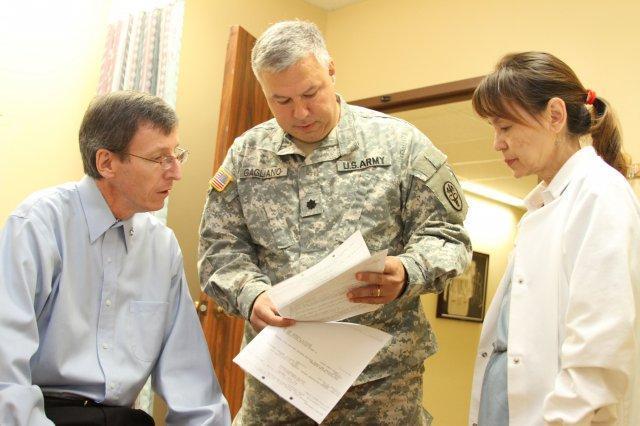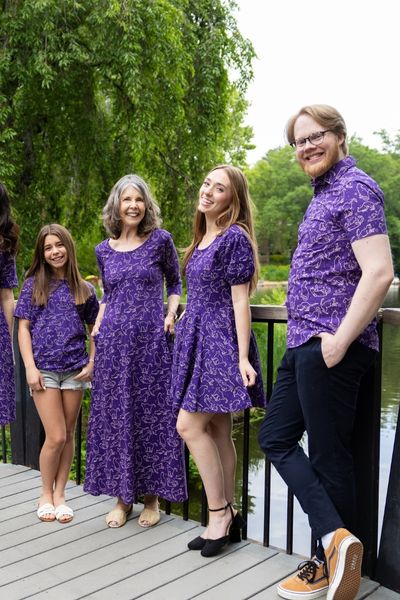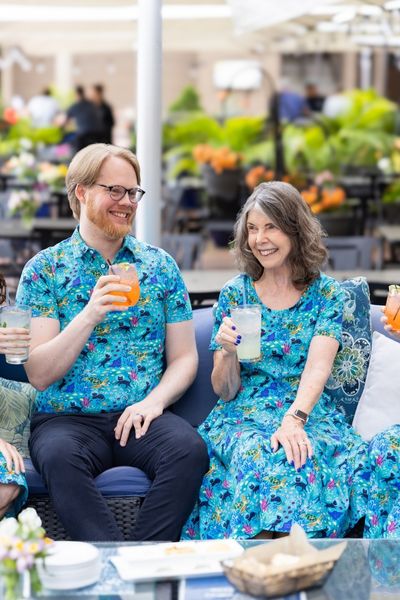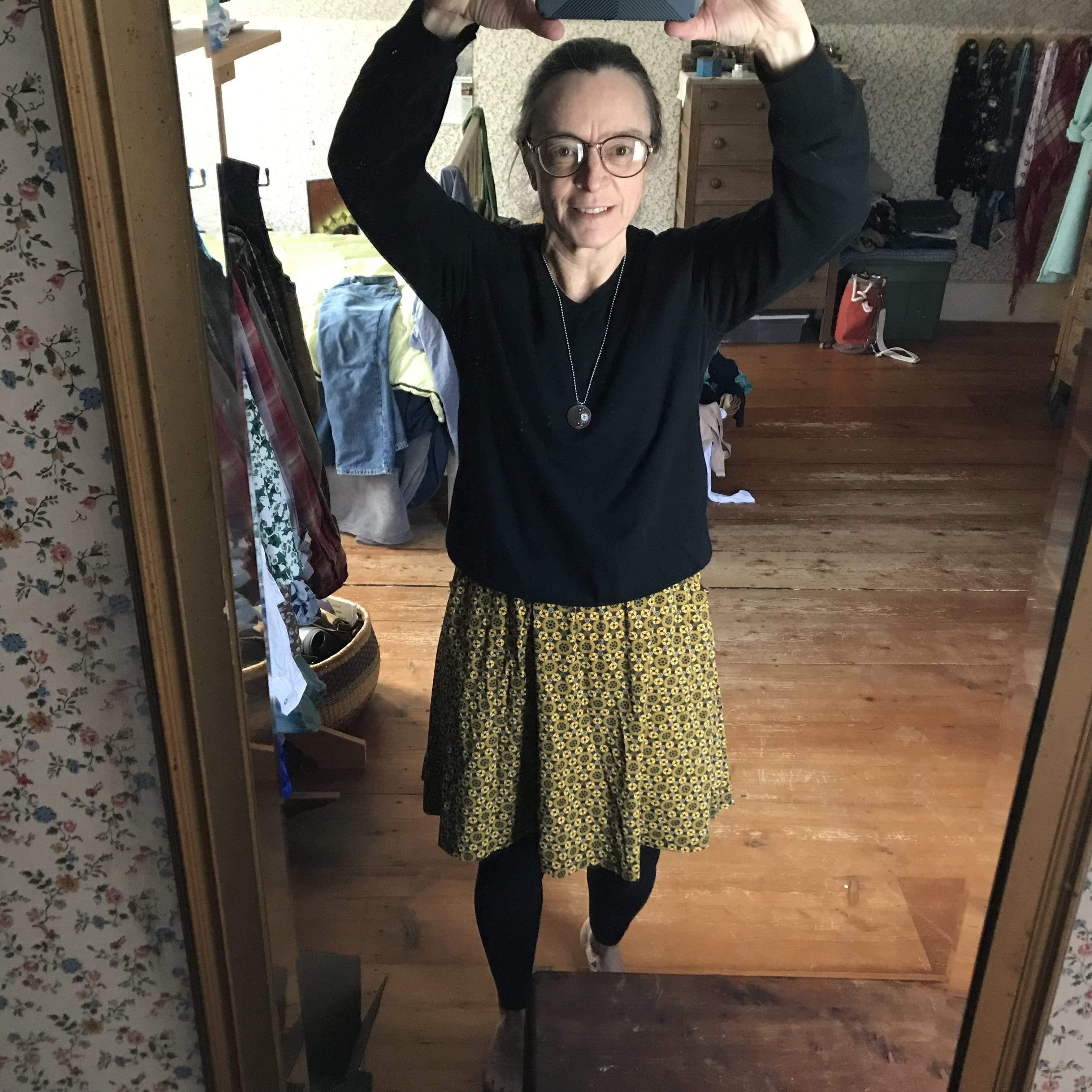
Our Amazing Customer: Daniel Shockley
We love posting stories about our wonderful customers. This one is near and dear to our hearts, as he is a cancer survivor. Our Co-Founder, Eva Everett, lost both of her grandmothers to cancer - breast and colon. Preventative tests are the key to beating these terrible disesases. This article was originally posted here.

Starting at age 50, it is encouraged that everyone get regular colonoscopies, an examination that use a fiber-optic camera to view your lower gastrointestinal tract, to screen for colon cancer.
In September 2011 when Daniel Shockley, a retired Sailor living on Oahu, went for his annual physical exam at Spark M. Matsunaga Veterans Affairs Medical Center, he thought besides a little weight loss, he had a clean bill of health.
Since Shockley had just turned 50, he was referred to a Hawaii Pacific Health clinic in downtown Honolulu for his first colonoscopy.
Due to his hectic work schedule, Shockley rescheduled the screening a couple times and it wasn't until May 8, 2012, when he got the colonoscopy.
"They usually schedule colonoscopies for 1-hour blocks of time, but they found so much wrong during mine that he had to spend a lot of time documenting and taking pictures," Shockley explained. "What they found was approximately 100 polyps embedded throughout my colon, rectum and anus. And at the traverse colon, the junction between the large and small intestine, they found a large tumor that was creating an 80 percent blockage."
Shockley was referred to Tripler Army Medical Center's general surgery clinic, and the week following the screening, he met with Susan Donlon, a certified genetic counselor at Tripler.
Donlon performed DNA tests on Shockley and within three weeks the tests had come back confirming that Shockley has a gene mutation known as Adenomatous Polyposis Coli, which increases a person's risk of developing colorectal cancer. As a result of the mutation, Shockley was diagnosed with Attenuated Familial Adenomatous Polyposis, a condition in which numerous polyps form mainly in the large intestine.
"I knew surgery was inevitable and I was willing to accept the worst case scenario the whole time," Shockley said.
On July 13, Shockley underwent a total proctocolectomy with ileostomy surgery, which removed portions of his large intestine to include the entire colon, rectum and anus.
Shockley spent about two weeks in Tripler's general inpatient surgery ward recovering before he was able to go home. It was nine weeks before he was able to go back to work.
Lt. Col. Ronald Gagliano, chief, Colon and Rectal Surgery and director, Surgical Research, TAMC, performed Shockley's surgery and has followed up with him to ensure he is not only well-informed, but also well-educated.
"He knew nothing of his disease and its many facets before we met and our team (at Tripler) began his personal education in order to promote effective counseling regarding his diagnostic and therapeutic options," Gagliano explained. "Finally we educated him regarding his genetic situation so that he could choose (how to best) inform his family. By giving him great care, we essentially treat an entire family cohort."
"(Dr. Gagliano and his team) have passion for what they do, and my care was phenomenal," Shockley expressed. "I cannot say enough good things about my stay and the care they provided."
Gagliano is very pleased with Shockley's recovery thus far and attributes it to his attitude.
"I tend not to think about things I can't control," Shockley explained. "Medical issues are not something I can control, but what I can control is my attitude and after 51 years on God's green earth my positive attitude has gotten me this far and I am not going to change it."
Because of Shockley's surgeries, he now has an ostomy pouching system, a prosthetic medical device that provides a means for the collection of waste. Nina Lum, certified wound, ostomy and continence nurse, TAMC, who helped care for Shockley throughout his recovery, echoed Gagliano's remarks.
"Shockley's resilience in the face of challenges including his tremendous enthusiasm for life, regardless of setbacks, certainly played a huge role in his recovery," Lum said. "He has always maintained a positive outlook, been fully engaged in his care from the beginning, reached out to the ostomy community not only for support, but also to offer support and advise based on his personal experience.
"He is selfless in trying to reach out to others," Lum added.
Shockley has embraced his diagnosis and challenged it from the start. He acts as a patient advocate and an ambassador for colon cancer awareness.
"(I want to) share my story with others on behalf of those patients that have gone before me and who were unable to share their story," Shockley explained. "My catchphrase is 'AFAP-Seize the disease!'"
Shockley wants to spread the information about his diagnosis and experience so he can inspire others to get the screening and be aware of the condition. Additionally, there is not a lot of information about AFAP available, so he hopes that talking about his diagnosis will help the medical community.
"By maintaining a positive attitude, the opportunity for a success story is much higher," Shockley said. "This in turn allows me a better chance of overcoming adversities I am faced with during my lifetime."





















Leave a comment
This site is protected by hCaptcha and the hCaptcha Privacy Policy and Terms of Service apply.